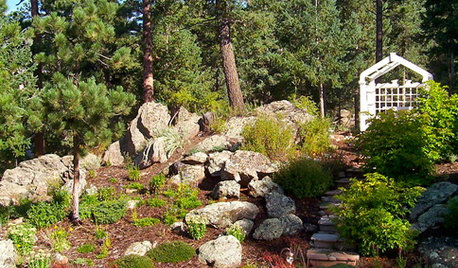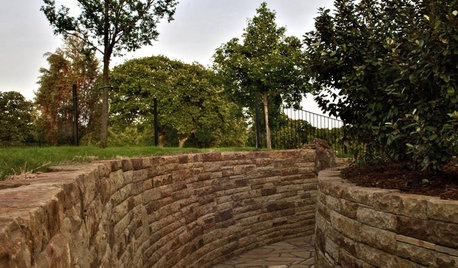Testing soil pH the Red Cabbage Style !!
ceth_k
11 years ago
Related Stories

GARDENING GUIDESHave Acidic Soil in Your Yard? Learn to Love Gardening Anyway
Look to acid-loving plants, like conifers and rhododendrons, to help your low-pH garden thrive
Full Story
GARDENING GUIDESHow to Stop Worrying and Start Loving Clay Soil
Clay has many more benefits than you might imagine
Full Story
GARDENING GUIDESGardening Solutions for Heavy Clay Soils
What’s a gardener to do with soil that’s easily compacted and has poor drainage? Find out here
Full Story
GARDENING GUIDESGrow a Beautiful Garden in Alkaline Soil
Got alkaline soil? Learn how to manage it and the many beautiful plants that will thrive in this ‘sweet’ soil
Full Story
FARM YOUR YARDHow to Get Good Soil for Your Edible Garden
The nutrients in your soil feed the plants that feed you. Here are tips on getting it right — just in time for planting season
Full Story
HEALTHY HOMEGet the Lead Out: Lead Safety at Home
Keep your family safe by properly testing for and dealing with lead in old painted surfaces, water and soil
Full Story
LANDSCAPE DESIGNPile On Style With a Dry-Laid Stone Retaining Wall
Durable, natural and practical, this landscape feature is an art form unto itself
Full Story
MEDITERRANEAN-STYLE DESIGNNail Your Curb Appeal: Mediterranean Style
Earthy hues, low-water landscaping and architectural flourishes are characteristic of these homes
Full Story
GARDENING GUIDESGarden Myths to Debunk as You Dig This Fall and Rest Over Winter
Termites hate wood mulch, don’t amend soil for trees, avoid gravel in planters — and more nuggets of garden wisdom
Full Story
LANDSCAPE DESIGNHow to Create a Cottage-Style Garden
If you like an abundance of plants — and visits from birds, bees and butterflies — this may be the style of yard for you
Full StoryMore Discussions







strawchicago z5
TheMasterGardener1
Related Professionals
Maple Heights Landscape Architects & Landscape Designers · Gainesville Landscape Contractors · Maple Valley Landscape Contractors · Battle Ground Landscape Contractors · Kaneohe Landscape Contractors · Madera Landscape Contractors · North Haven Landscape Contractors · Pomona Landscape Contractors · Wareham Landscape Contractors · Casselberry Landscape Contractors · Merrifield Landscape Contractors · Atlantic City Decks, Patios & Outdoor Enclosures · Draper Decks, Patios & Outdoor Enclosures · Marlboro Decks, Patios & Outdoor Enclosures · Redlands Decks, Patios & Outdoor Enclosuresstrawchicago z5
TheMasterGardener1
strawchicago z5
annpat
ericwi
strawchicago z5